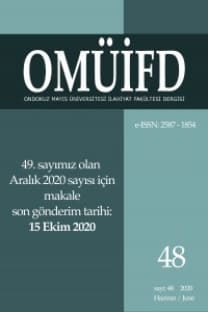Hans-Georg Gadamer ve "Hakikat ve Yöntem" (Wahrheit Und Methode) Adlı Eseri
Heidegger’in önde gelen öğrencilerinden Hans-Georg Gadamer’in Wahrheit und Methode adlı eserinin dünya çapında şöhret bulmasına yol açan şey, Onun felsefi hermenötik adını verdiği bir pespektif içinde farklı felsefi yaklaşımları tutarlı ve rasyonel bir biçimde kaynaştırmasıdır. Gadamer önyargı kavramının anlamanın gerçekleşmesi için bir safha olduğunu kabul ederek, ön yargıların ancak metinde bulunan konunun kendisine yönelmek ve konuyu karşılıklı soru soran ve cevap veren katılımcılar arasında gerçekleşen diyalog modeline göre anlamak suretiyle aşılabileceğini ileri sürer. O’na göre, insanın kendisini ve başkasını anlaması daima diyalog tarzında gerçekleşir, zira anlama dil içinde ortaya çıkar; dil ise ancak konuşma (discourse) olayında görüleceği üzere somut ve zamansal olarak varolur. Yani dil, işaretler sistemi değil, temelde varlığın ifşasıdır ve insanın varlığa ait oluş tarzıdır. Anlama hadisesinin gerisinde bulunan tarihsel gelenek dil içinde ortaya çıktığı ve dil daima bir katılım hadisesi olduğu için anlama zorunlu olarak tarihsel ve zamansaldır. Burada zamansallık veya tarihsellik temelde her bir gerçek anlamanın, varlığın ifşa hadisesi olarak, kendi başına diğer anlama hadiselerine indirgenemeyecek nitelikte ortaya çıkışına işaret eder. Tarihe yön veren büyük felsefi düşünceler, bilimsel tezler, mezhepler vs. bu tür anlama olaylarına örnek teşkil ederler. Bunun yanı sıra, anlama her bireyde farklı bir tecrübe olarak ortaya çıktığı için tarihsel ve zamansaldır. Felsefi hermenötik, anlamın tarihsel sürekliliğini ortaya çıkararak mevcut zamanı hem kendisine özgü önyargılarından kurtarmayı hem de anlamın geleceğe taşınmasında sahih bir safha haline getirmeyi amaçlar.
Anahtar Kelimeler:
-
Hans-Georg Gadamer And Hıs Wahrheıt Und Methode
After the publication of Wahrheit und Methode in 1960, Hans-Georg Gadamer, a celebrated student of Martin Heidegger, received rapidly a worldwide response for his intellectual genius by fusing different philosophical horizons into a coherent and rational perspective which he calls ‘philosophical hermeneutics.’ In his attempt to construct philosophical hermeneutics, Gadamer criticizes historicism, romantic hermeneutics and modern subjectivism since they disregard ontological structure of historical understanding. By claiming that prejudgment (or fore-understanding) is the basis for a genuine understanding, he contends that we can overcome false prejudgment only by having recourse to the subject matter of the texts and by understanding texts on the model of dialogue which happens between the partners questioning themselves on the basis of a subject (sache). For him, understanding oneself and others happens as an event of dialogue simply because understanding takes place within the world of language. Language gets concretized and temporalized by the give and take of words. In other words, language is not a mere system of signs, but rather is uncoveredness of beings and the way within which human Dasein realizes himself. Since historical tradition which supports every event of understanding discloses itself only within language and language is a matter of sharing and participating, understanding is historical and temporal. Here the words “historicity” and “temporality” do not refer merely to “being in the history and time.” This is to approach the event of understanding from chronological and universal notion of time. Historicity and temporality are basically the distinctiveness of disclosedness of beings. Philosophical thoughts, scientific theses, trends which effect the course of history constitute the historicity of understanding by creating a sort of discontinuity in the continuity of history. Hence historicity is the basis for the formation of fore understanding and prejudgment. Philosophical hermeneutics tries to show how the continuity of history and traditions occurs through discontinuity (historicity) of understanding.
Keywords:
-,
- Yayın Aralığı: Yılda 2 Sayı
- Başlangıç: 1986
- Yayıncı: ONDOKUZ MAYIS ÜNİVERSİTESİ
Sayıdaki Diğer Makaleler
İslâm Hukuk Metodolojisinde İstishâb
Muhâsibî’nin Bilgi Kaynaklarına Bakışı
İslam Hukuku Açısından Satış Sözleşmelerinde Mülkiyetin Devrine Yönelik Engeller
Kutsal Kitab Olarak Kur’an: Çağdaş Bir Hıristiyan Değerlenirmesi (Wilfred Cantwell Smith Örneği
Algılama Açısından Kur’an Mealleri
Mu‘Tezilî Ahlâk Nazariyesinde Bilgi-Değer Münâsebetine Bir Bakış
Alişah B. Hacı Büke Evbehî ve Mûsikî Nazariyatçılığı
Hans-Georg Gadamer ve "Hakikat ve Yöntem" (Wahrheit Und Methode) Adlı Eseri
